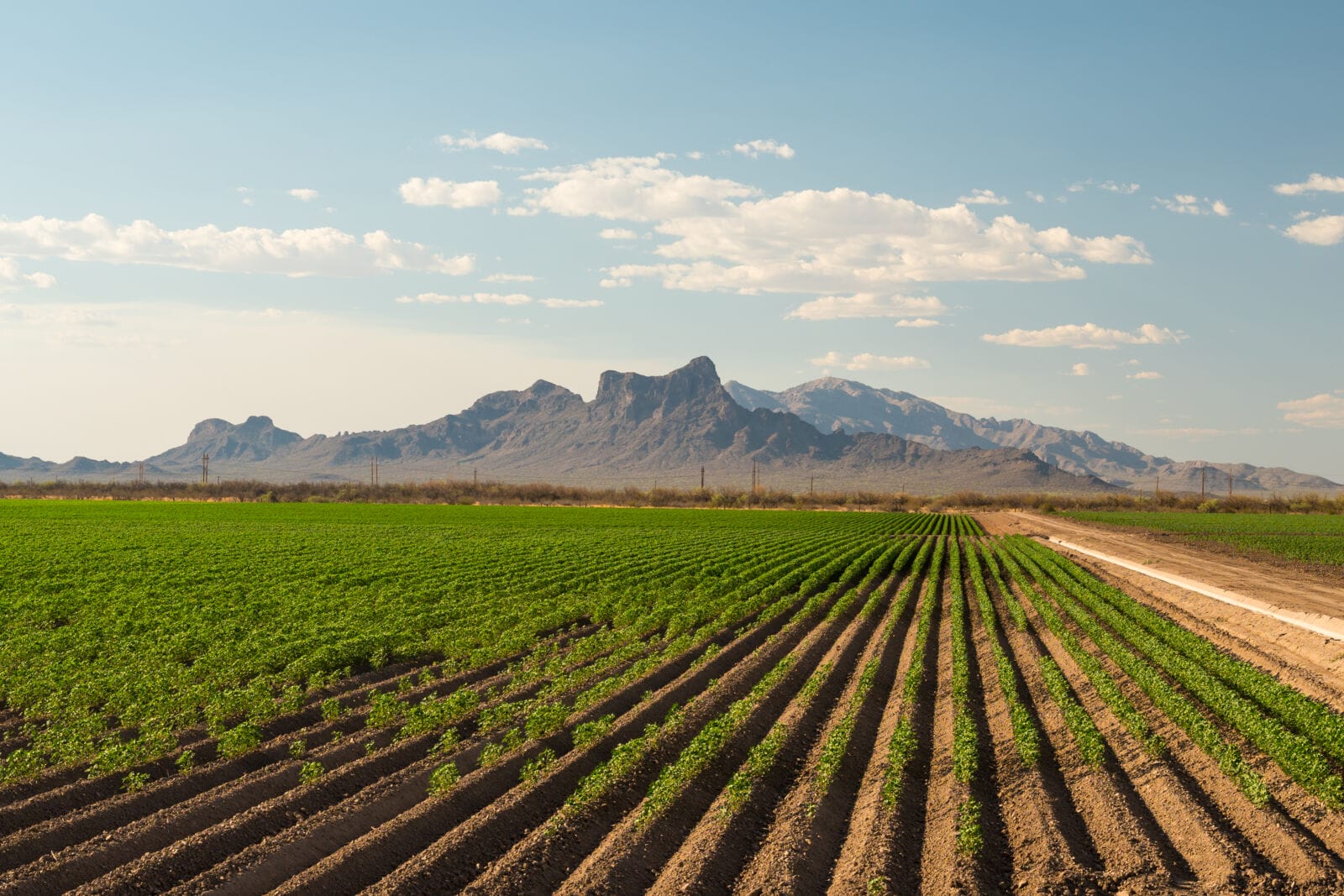In the heart of Arizona, a quiet revolution is underway as rural farming embraces cutting-edge technology. We’re witnessing a remarkable transformation where traditional practices meet innovative solutions, reshaping the landscape of agriculture. From drones surveying vast fields to precision irrigation systems, tech is not just an accessory, it’s becoming essential for modern farming.
One key area of focus is crop diversification. Many Arizona farmers are turning to specialty crops that thrive in the arid climate, such as pecans. With the help of smart soil monitoring and water-efficient practices, these nutrient-rich nuts are being cultivated more sustainably, opening new opportunities for growth in local and export markets.
Technology isn’t just revolutionizing the fields, it’s making an impact post-harvest too. For instance, farmers and small producers are enhancing their value-added offerings, like artisanal food products. Whether it’s farm-fresh honey or small-batch roasted beans, tools like a high-quality coffee grinder are being used to elevate both flavor and freshness, appealing to a growing audience of conscious consumers.
Photo by Mark Stebnicki on Pexels
As we delve into this evolution, we’ll explore how Arizona farmers are leveraging advancements to boost productivity and sustainability. The integration of technology is helping them tackle challenges like water scarcity and labor shortages, ensuring that agriculture remains viable in an ever-changing environment. Join us as we uncover the exciting ways Arizona is leading the charge in the agricultural tech movement.
Overview of Arizona Agriculture
Arizona agriculture plays a vital role in both the state’s economy and food production. With diverse crops and livestock, it’s essential that we understand the current landscape.
Importance of Agriculture in Arizona
Agriculture contributes over $23 billion annually to Arizona’s economy, representing a significant sector employing thousands. Key crops include cotton, lettuce, and citrus, with Arizona ranking among the top states for vegetable production. Livestock, particularly cattle and dairy products, also provides valuable revenue. Agricultural innovation supports our economy and helps meet the growing demand for food and sustainable practices. As we embrace technological advances, we enhance efficiency while maintaining Arizona’s rich agricultural heritage.
Current Challenges Faced by Farmers
Farmers in Arizona confront several persistent challenges. Water scarcity remains critical, exacerbated by ongoing drought conditions and limited water resources. Labor shortages complicate workforce management, impacting crop yields and production schedules. Additionally, fluctuating market prices for commodities place farmers under financial pressure, forcing many to adapt quickly. Pest and disease management poses further obstacles, urging the need for innovative solutions. These challenges highlight the importance of adopting new technologies and strategies to ensure the sustainability of Arizona agriculture.
MORE NEWS: Rediscover Tempe with your best summer staycation yet
INDUSTRY INSIGHTS: Want more news like this? Get our free newsletter here
Technological Innovations in Rural Farming
Innovative technologies are transforming rural farming in Arizona. Tools like precision agriculture and drone technology enhance productivity and sustainability, addressing crucial challenges in our agricultural landscape.
Precision Agriculture
Precision agriculture involves using data analytics and GPS technology to optimize crop production. This method allows us to monitor soil health, crop growth, and yield potential with great accuracy. By utilizing sensors and IoT devices, farmers can apply fertilizers and water precisely, reducing waste and improving efficiency. Integrating these technologies leads to significant increases in yield and a healthier environment. For instance, utilizing data-driven decisions cuts fertilizer costs by up to 20%, illustrating the financial benefits alongside environmental sustainability.
Drone Technology in Farming
Drone technology plays a pivotal role in modern farming practices. Drones equipped with high-resolution cameras and sensors enable us to survey large areas quickly and efficiently. We can monitor crop health, assess irrigation systems, and identify pest issues, providing actionable insights in real time. The aerial perspective enhances our ability to manage resources effectively and reduce costs. With drone applications increasing, some farmers report up to a 30% boost in operational efficiency, showcasing the impact of this technology on our agricultural operations.
Sustainable Practices in Arizona
Photo by Avi Waxman on Unsplash
Sustainable practices in Arizona agriculture merge innovation with tradition. Farmers implement various techniques to enhance efficiency while conserving resources.
Water Conservation Techniques
Water conservation techniques play a critical role in sustainable farming. We observe multiple methods, including drip irrigation systems that reduce water waste by delivering water directly to plant roots. These systems can cut water usage by up to 50% compared to traditional methods. Additionally, rainwater harvesting captures precipitation for irrigation, ensuring water availability during dry seasons. We also see soil moisture sensors providing real-time data, allowing farmers to irrigate only when necessary. These technologies collectively address Arizona’s pressing water scarcity, helping to maintain productivity and protect this vital resource.
Organic Farming Adopted by Tech-Driven Practices
Organic farming thrives in Arizona as technology enhances its viability. We see many farmers adopting precision farming tools, which support organic practices by optimizing inputs and minimizing chemical use. Techniques like crop rotation and cover cropping improve soil health, while data from satellite imagery helps monitor crop conditions. Our collaboration with local institutions promotes organic methods, empowering farmers with training and resources. This approach contributes to market demand, with over $100 million in organic products annually. By integrating technology, we bolster the resilience and sustainability of organic farming in Arizona, showcasing a commitment to ecological stewardship.
Future of Farming in Arizona
We observe that the agricultural landscape in Arizona is continuously evolving due to technological advancements and innovative practices. These changes shape the future of farming and significantly impact productivity and sustainability.
Trends to Watch in Agricultural Technology
We note several trends transforming agricultural technology in Arizona. Artificial intelligence is enhancing data analysis, improving decision-making for crop management. Automation is streamlining labor-intensive processes, allowing farmers to improve efficiency. Vertical farming is gaining traction, providing sustainable solutions for urban areas. Blockchain technology is increasing transparency in supply chains, ensuring food safety and quality. Additionally, advancements in biotechnology are leading to more resilient crop varieties, crucial in a changing climate. These trends not only improve yields but also promote sustainable practices among Arizona farmers.
The Role of Government and Policy
We recognize the crucial influence of government and policy on Arizona’s agricultural future. Legislative support for research and development fosters innovation, driving technological adoption among farmers. Funding programs incentivize sustainable practices, ensuring the long-term viability of the sector. Water management regulations address critical water issues, emphasizing conservation techniques like those seen in drip irrigation. Collaboration among state agencies, universities, and agricultural stakeholders promotes knowledge exchange, improving farming methods across the state. These policies collectively create a supportive environment for technological integration and sustainable growth in agriculture. For more insights on agricultural advancements, check out the USDA for authoritative information.




